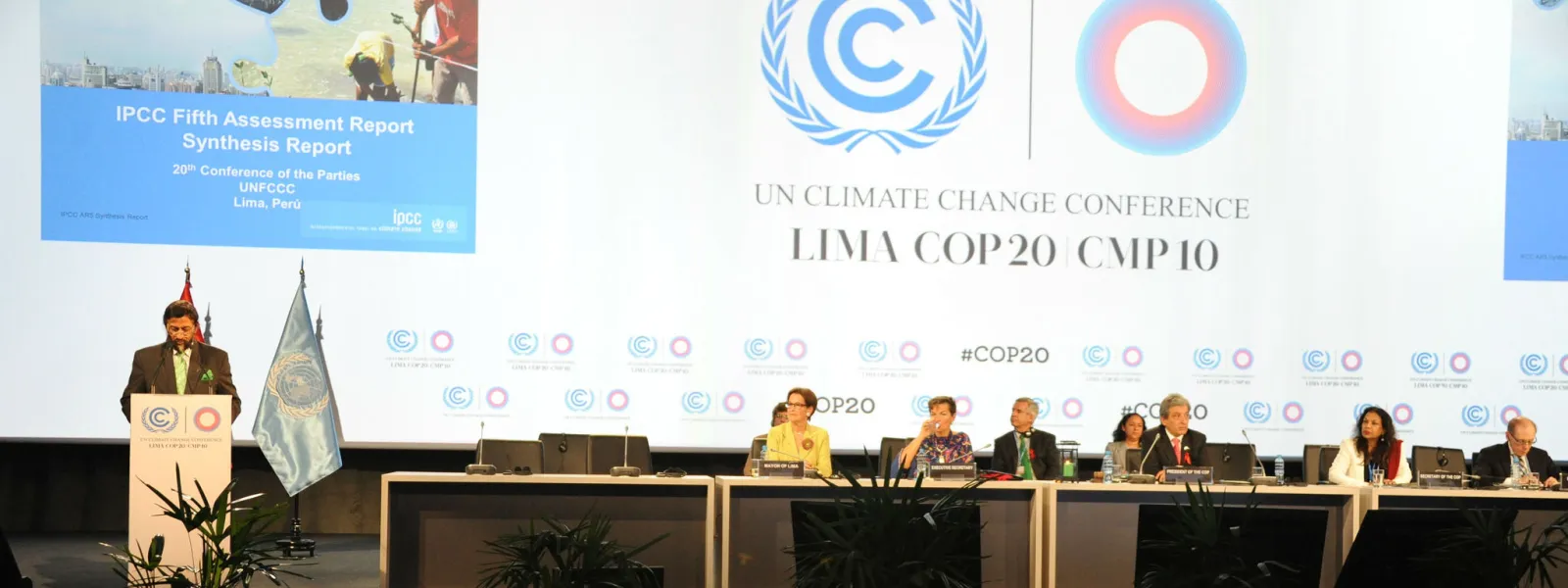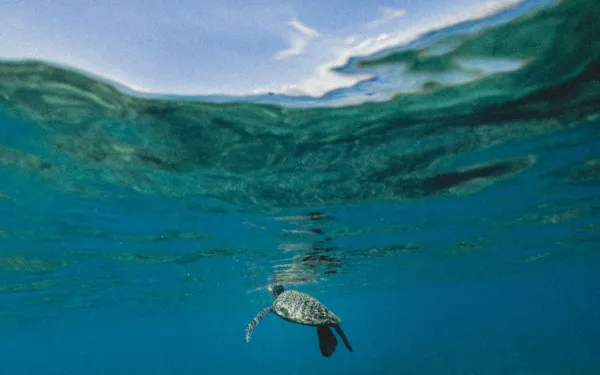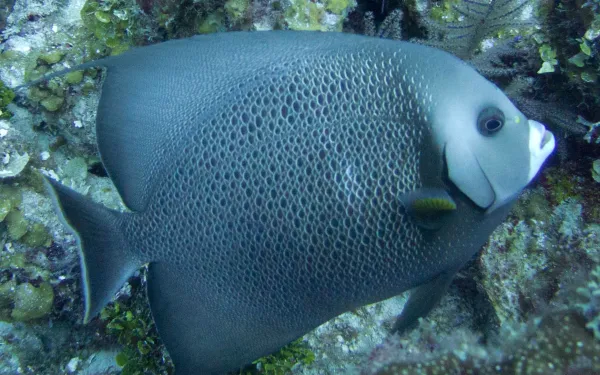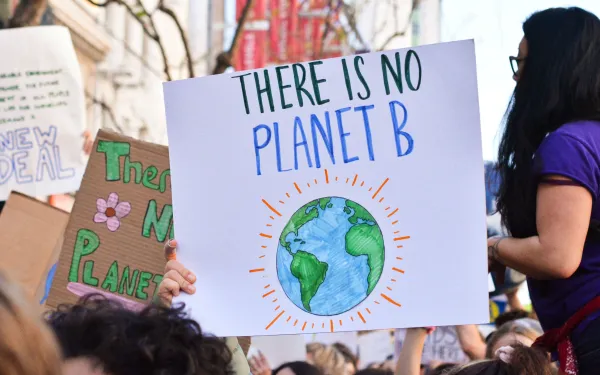
Project
Photo: UNFCCCMonitoring the UN Climate Negotiations
As changes in climate become more extreme, their affects are being hardest felt throughout developing countries. Since 1994, the United Nations Framework Convention on Climate Change has laid out actions to limit the increase of global average temperatures and confront the impacts of climate change.
The States that are Parties to the Convention meet every year in the so-called Conference of the Parties (COP) to review their commitments, the progress made in fulfilling them, and pending challenges in the global fight against the climate crisis.
At COP21 in 2015, they adopted the Paris Agreement, which seeks to strengthen the global response to the climate emergency, establishing a common framework for all countries to work on the basis of their capacities and through the presentation of Nationally Determined Contributions (NDC) that will:
- Limit the increase in global temperatures to 2°C compared to pre-industrial levels and continue efforts to limit it to 1.5°C;
- Increase the capacity of countries to adapt to the impacts of climate change; and
- Ensure that financing responds to the goal of reducing greenhouse gas emissions.
Our focus areas
THE CLIMATE CRISIS AND HUMAN RIGHTS
The climate crisis, due to its transversal character, has repercussions in various fields, geographies, contexts and people. In this regard, the Preamble to the Paris Agreement states that it is the obligation of States to "respect, promote and fulfill their respective obligations on human rights, the right to health, the rights of indigenous peoples, local communities, migrants, children, persons with disabilities and people in vulnerable situations and the right to development, as well as gender equality, the empowerment of women and intergenerational equity."
AIDA at the COP
COP25: Chile-Madrid 2019
At COP25 in Madrid, Spain, we advocated for the inclusion of the human rights perspective in various agenda items. We promoted the incorporation of broad socio-environmental safeguards in the regulation of Article 6 of the Paris Agreement, which refers to carbon markets. We closely followed the adoption of the Gender Action Plan, as well as the Santiago Network, created "to catalyze technical assistance […] in developing countries that are particularly vulnerable to the adverse affects of climate change." We also encouraged the inclusion of ambitious and measurable targets for the reduction of short-lived climate pollutants in the climate commitments of States.
Related projects
Latest News

Want to solve the climate crisis? Let's bet on the ocean
So far, the ocean has featured little in the United Nations climate negotiations. Yet without it, solutions to the climate crisis would be incomplete. The annual sessions of the UN Convention on Climate Change have emphasized reducing greenhouse gas emissions, but have not recognized the role of the ocean and its importance in meeting climate change goals. A healthy ocean is a natural carbon reservoir and its degradation implies the intensification of the climate crisis. Without its help, we cannot prevent the planet from warming to an unsustainable level. But the ocean is beginning to crumble due to pressure from factors such as overfishing and pollution, in addition to the climate crisis. The latest report from the Intergovernmental Panel on Climate Change (IPCC) shows that the ocean suffers from overheating, acidification, and loss of oxygen—an element essential for life under the sea. The report revealed the worst: the climate crisis is the ocean crisis. However, we still have windows of opportunity to bring the ocean back to health by improving its governance and controlling the planet's temperature. Decadent health The ocean plays a key role in maintaining life on the planet. It produces half the oxygen we breathe, circulates fresh water, and generates nutrients. The livelihoods of fishing and tourism communities depend on its good health. In recent years, the ocean has been a buffer. Standing between our communities and the worst effects of the climate crisis, the ocean has absorbed 93 percent of the excess heat and 28 percent of the carbon dioxide in the atmosphere, UN experts said. But this natural protection has serious consequences. By absorbing and interacting with pollutants, the rate of increase in ocean temperature has more than doubled since the end of the 20th century, according to the IPCC. Recent scientific evidence is not just another warning, but perhaps the last and most urgent call to protect the ocean through accelerated climate action. Act now An opportunity to rescue this ecosystem is in each country's plans to reduce emissions and contain global warming to 1.5 degrees Celsius (or as close as possible to that figure). The twenty-fifth Conference of the Parties (COP25) to the United Nations Framework Convention on Climate Change, to be held in Chile in December, represents the final deadline for countries to submit new and more ambitious commitments by 2020. Costa Rica, as host of the COP25 preparatory meeting, decided to give nature space in the climate fight. In fact, the ocean is one of the issues that the government has placed on the agenda of the PreCOP, underway this week. Stronger commitments to reducing emissions will rid the ocean of one of the main pressure points that has it on the verge of collapse. Integral solution This is not the only action the international community is taking to save this ecosystem. A treaty is still being negotiated on the high seas: marine areas beyond national jurisdiction. Together they account for almost two-thirds of the ocean. Countries have between now and 2020 to achieve a treaty that protects the high seas and, with it, almost half of the planet. On the other hand, the States Parties to the Convention on Biological Diversity will negotiate new targets for the protection of biodiversity at a meeting to be held in 2020. The target for marine biodiversity should be the protection of at least 30 percent of the ocean through effectively protected areas and the sustainable management of the remaining 70 percent. Ending overfishing and pollution in all its forms, as well as preventing further loss of biodiversity, ecosystems and habitats, are essential measures within our reach. There is an urgent need for the political class to act accordingly and protect the ocean. The next decade is imperative.
Read more
Empowering fishermen to protect coral reefs, and their guardians
When he thinks of his childhood, Mario Smith remembers the abundance of fish, crabs and lobsters he and his father used to find while fishing, an activity now in decline on his island. "There used to be such abundance and today we are forbidden to fish for many things because of our irresponsibility in taking care of our resources," said Mario, who is now the leader of the San Luis Fishermen's Committee, whose members work on San Andres Island, Colombia. San Luis is a hamlet located on the east coast of San Andres with white sandy beaches and calm waters. I was there in August to support the dissemination of a very important resolution for the conservation of the coral ecosystems of the Colombian Caribbean. The law prohibits the capture and sale of several species of herbivorous and omnivorous fish that cleanse the corals of the algae that take away their light and space, thus supporting their survival. In recent years, a decrease in commercial species has led fishing communities have to go after herbivorous fish. This, in turn, has caused a reduction in populations of these species, particularly in the Caribbean. The resolution was issued on July 15 by the Corporation for the Sustainable Development of the Archipelago of San Andrés, Providencia and Santa Catalina (CORALINA), the environmental authority in that region. Disseminating and socializing these type of norms in local communities is very important so that residents, understanding the importance of these fish for the health of both the reefs and their economies, support actions aimed at their conservation. Along with CORALINA's education team, I visited several fishermen's committees, as well as schools and restaurants. I participated in a meeting of the Inter-Institutional Committee on Environmental Education, which was also attended by representatives of the government, the police, and the tourism and education sectors. The visits were very enriching, full of questions and emotions. In each of them I highlighted the benefits of taking care of our corals and the fish that help them thrive. Coral reefs are one of the most important ecosystems on the planet. They are home to more than 25% of our marine species and protect our coasts from hurricanes, storms and other weather events. At Cajasai School, the active participation of one student surprised me. He told me of his concern about garbage on his beaches and about catching parrotfish, one of the most important species of herbivorous fish. "I'm very concerned about my resources and that's why I made a foundation to take care of the beaches that are close to my home," he told me passionately. His empathy and desire to fight for his beaches and sea inspired me. The beautiful landscapes of San Andrés and the interest of all the people I spoke with filled me with satisfaction and energy to continue working. But there is still a lot to do. Our marine resources are in danger of disappearing in the face of the global climate crisis. And the urgency to do something about it is becoming ever more pressing. Our coral reefs are among the ecosystems most threatened by this crisis, mainly due to changes in the acidity and temperature of our oceans. In addition, human actions such as pollution and overfishing are causing irreversible damages. That’s why AIDA will continue to support local efforts to conserve important marine species, such as the parrotfish and his herbivorous relatives. LEARN MORE
Read more
Human rights, the great absentees at the UN Climate Summit
The United Nations Climate Action Summit on September 23rd was an interesting step toward the future. Some commitments were announced to confront the climate crisis. But one key aspect was absent: the express, transversal and decisive inclusion of human rights. Goals of the global meeting included preventing the development of new coal projects, achieving zero net emissions by 2050, ending fossil fuel subsidies, and making those who pollute pay. To this end, 19 states—supported by various organizations—worked in coalition to achieve goals on mitigation, social and political drivers, youth and public mobilization, energy transition, industrial transition, nature-based solutions, adaptation and resilience, climate finance and carbon pricing, as well as infrastructure, cities and local action. Although previous meetings were held with indigenous peoples, and some coalitions recognized that solutions shouldn’t increase inequality—but be fair and include a gender perspective—what we needed was an explicit reference to human rights. It was conspicuous for its absence. This is not a minor need. It’s enough to see those who suffer first and worst the impacts of the climate emergency: families in Central America who, after losing their crops, leave everything behind to migrate to the United States; residents of the Bahamas, devastated by Hurricane Dorian; and those who live in the Amazon, partially destroyed by fires. The climate crisis is already affecting human rights. Michelle Bachelet, UN High Commissioner for Human Rights, called it their greatest threat. Some measures to address the climate emergency actually aggravate it, while ignoring human rights. This is the case with wind projects and large hydroelectric dams in Brazil, Mexico, Colombia and Honduras, which have been implemented without consulting local communities, some of them indigenous. It was therefore essential that world leaders use Summit to expressly include in their commitments a respect for human rights, a recognition already found in the Paris Agreement. That did not happen. Nevertheless, hope is fuelled by growing awareness, which increases pressure on governments, companies and other sectors to contribute more. Millions of students around the world are on strike and dropping out of school on Fridays. Mobilizations have multiplied and so have their supporters. Having true ambition for climate justice means putting human rights at the center of our solutions, not least because indigenous and traditional communities have knowledge essential to preserving the planet.
Read more